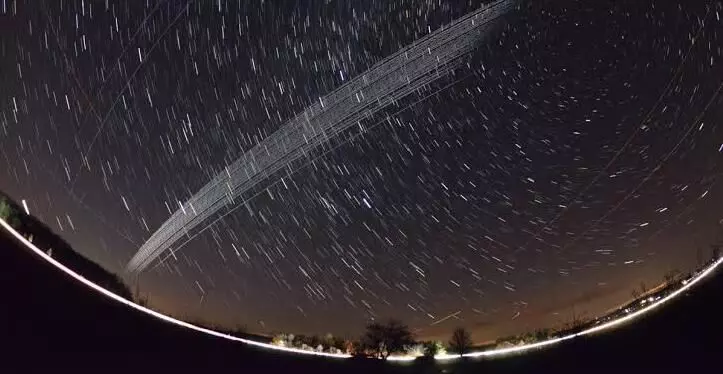
Satellites add to light pollution, Study
text_fieldsAccording to a new study, published in the journal Monthly Notices of the Royal Astronomical Society: Letters, objects sent to space to orbit the earth increase the overall brightness of the night sky by more than 10 per cent above natural light levels.
Unlike the usual ground-based light pollution, this kind of artificial light in the night sky can be seen across a large part of the Earth's surface, the study found.
The report said that "While telescopes and sensitive cameras often resolve space objects as discrete points of light, low-resolution detectors of light such as the human eye see only the combined effect of many such objects."
The scientists from institutions in Slovakia, Spain and the US modelled the space objects' contribution to the overall brightness of the night sky, using the known distributions of the objects' size and brightness as inputs to the model. Both the active satellites as well as artificial space debris were included in their calculations during the study.
Studies have been done earlier on the effect of individual satellites and space debris affecting astronomers' images of the night skies. But this is the first research to have taken into account the overall impact of space objects around Earth on the night sky.
The large number of communication satellites sent to space adds to the light pollution and there are also high chances for these satellites to collide with each other or with other objects to form more debris in space.
The light from this debris and increasing satellites choke the sky and clock the astronomical bodies from human sight, found the researchers.
The study hopes to change the nature of the ongoing dialogue between satellite operators and astronomers regarding the solutions as to how best to manage the orbital space around the Earth.























